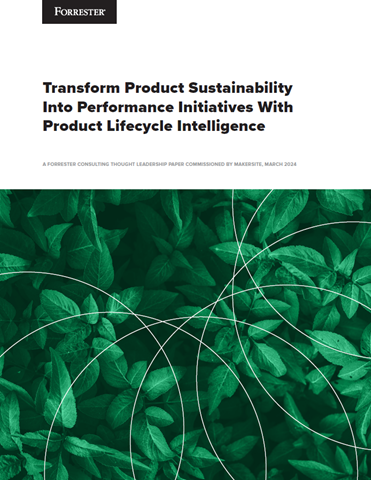Background checks present unexpected opportunity for employers seeking competitive advantage
Sponsored by Asurint
Accelerated post-coronavirus hiring expectations are leading companies to re-engineer recruitment and onboarding processes to drive business performance
Across the US, competition for talent is heating up as Covid-19 recedes. Companies are striving to entice workers back to on-premises positions and seeking people to help leverage emerging opportunities in a rebounding economy.
Recruitment professionals are busy. Not only are employers staffing up, a majority of the labour force expects to look for new work. This means burgeoning piles of résumés and applications and expanding workloads for HR teams. Heightened attention to diversity and inclusion has also added hiring practice reform to many agendas.
All elements of talent acquisition are up for reconsideration. Forward-looking organisations are aggressively optimising to reduce manual tasks, drive efficiencies and boost hiring success. In fact, many enterprises are finding competitive advantage in an unexpected place – their background checks. Once considered mere box-ticking exercises, pre-employment background screenings are now doing more to help fill positions rapidly with the right candidates while unburdening HR personnel.
Expanding the candidate pool
Despite the fact that more than eight million workers remain sidelined from the pandemic, many employers are struggling to recruit. In addition to offering signing bonuses and other incentives, companies are re-examining their stance on background report results. Whereas a criminal record may have been cause for disqualification in the past, it is now equally likely to be the start of a conversation.
For one thing, businesses today cannot afford to rule out candidates based on incorrect information. They are looking to pre-employment screening providers with the data resources, quality assurance practices, technologies and services to deliver near-perfect accuracy and respond to any candidate disputes effectively.
“Ultimately, if there is an inaccurate record, it is our duty to help take care of it, personally confirming or correcting the information,” says Gregg Gay, CEO of Asurint, a leader in the background check space.
“We have a responsibility here.”
Asurint CTO David Ramsey agrees, and underscores the commitment to software performance. “Companies need to ask whether a provider has built out systems and processes that are secure, consistent and perform at scale, especially if you’re a larger employer,” he says.
Even when a criminal record is validated, companies are digging deeper to decide if the issue is exclusionary. Human resources professionals are taking a more holistic view, often discounting old offences and those with no direct relationship to the position or offer. Cannabis convictions in particular are gaining new scrutiny as societal attitudes and laws change and employers become more aware of the racially inequitable enforcement that has negatively affected job prospects for millions of people of colour.
“It’s shifted to a second-chance movement, getting more accessible options for folks with a prior criminal past because studies have shown that helps reduce the risk of recidivism,” says Kelly Uebel, General Counsel for Asurint.
Ban the box and/or fair chance laws, which affect when and how employers can ask candidates about and consider criminal history, are among the topics continually monitored by Uebel’s Compliance team and covered in whitepapers, webinars and other resources clients rely on.
Securing talent faster
When the HR team identifies a great job candidate, they don’t want to lose the hire to another company. Ensuring the individual actually joins the organisation is frequently a matter of onboarding speed.
Background checks once again play an important role. The last decade saw a shift to SaaS and cloud-based solutions with APIs to seamlessly integrate with existing HR information systems (HRIS) and applicant tracking solutions (ATS). Workflows are streamlined and delays avoided when HR managers and recruiters order, track and review background checks from within the same software they use for other day-to-day hiring tasks.
Gay is confident that Asurint’s cloud-native, visual workflow-driven, HRIS- and ATS-integrated technology platform is an asset to customers. “We have the ability to customise workflows to meet the requirements of our clients’ business,” he said. “Also, at a high level, we’re an extension of the client’s brand. How we treat an applicant in terms of convenience, accuracy, speed and responsiveness – letting the candidate know and replying if something derogatory comes up in a search – matters for the employer’s reputation. That takes both technology and great people.”
Another key factor is turnaround time. Asurint CRO Courtny Cloeter explained how background search companies that eliminate manual processing accelerate results. “Everything is seamless. Instead of taking two or three days to get a background report, it takes half a day because of the automation,” he says.
As background screening becomes more advanced, Asurint is continually investing in other high-tech and automated solutions to help save companies time, money and improve their competitive advantage.
Guarding against risk
Employment law and data security and privacy concerns are both evolving, leading to a changing threat landscape. Staying in the legal and regulatory clear requires vigilance and up-to-date information.
For example, litigation related to the Fair Credit Reporting Act is on the rise. This law requires employers to follow a specific notification process when background check results could potentially result in an adverse employment decision. Hiring professionals need help to ensure they follow each step and retain accurate documentation. Asurint’s subject matter experts serve as an essential resource for FCRA and other compliance issues, and the platform’s automation features ease the manual burden and help eliminate human error and risk.
Perhaps more troublesome than federal regulations is the patchwork of state laws. “You’re going to see more complexity on state regulations,” says Cloeter. “Our customers struggle with a lack of consistency, especially with state and local requirements. It’s a problem we help them solve.”
Of course, the last thing an employer wants is a cyber-attack to reveal confidential information about candidates and employees. Given the amount of personal information involved in preparing a background report, companies should verify that any partner they consider working with is accredited by the Professional Background Screening Association and holds a current SOC 2 certificate, which confirms that comprehensive information security protocols, such as data encryption, are in place.
With ambitious post-pandemic business objectives to achieve, organisations nationwide are exploring the many ways fast, accurate, automated, full-service and compliant background search capabilities can help them keep up with 2021’s hiring challenges. As companies engage innovative employment screening providers, they’ll also stay ahead of tomorrow’s talent acquisition demands.
For more information, visit asurint.com
by Heather Driggs, Director of Marketing, Asurint

Business Reporter Team
Most Viewed
23-29 Hendon Lane, London, N3 1RT
23-29 Hendon Lane, London, N3 1RT
020 8349 4363
© 2024, Lyonsdown Limited. Business Reporter® is a registered trademark of Lyonsdown Ltd. VAT registration number: 830519543





